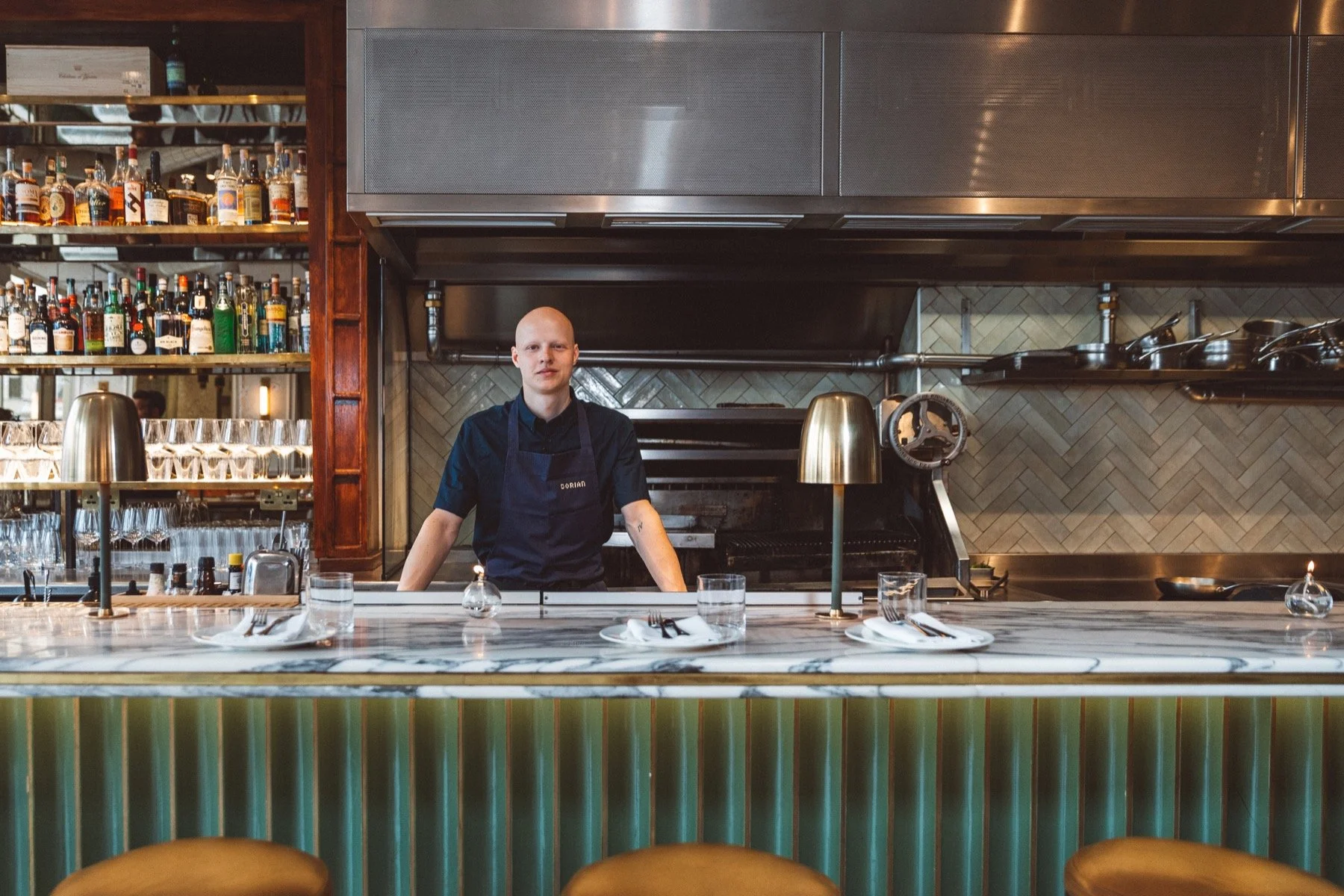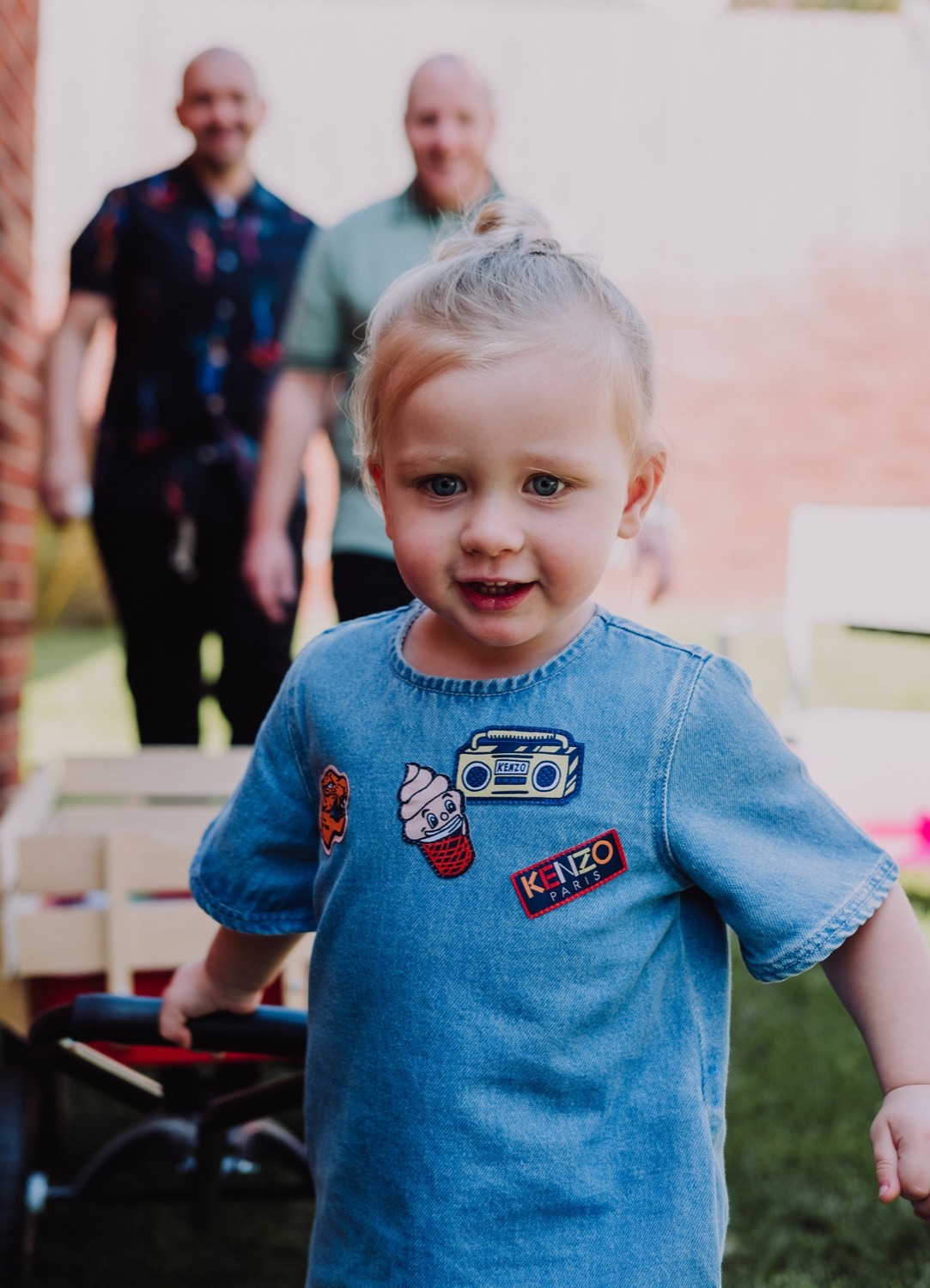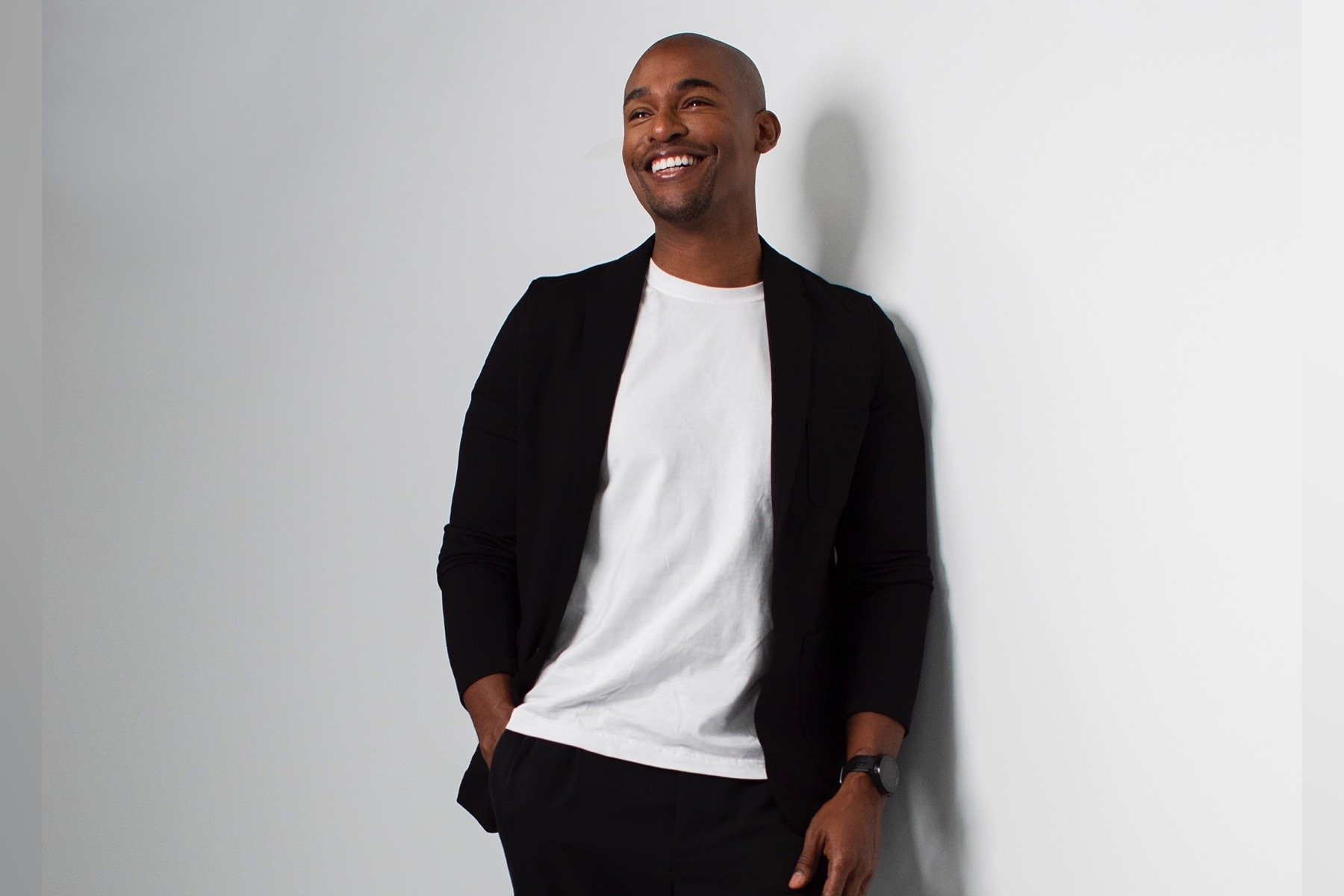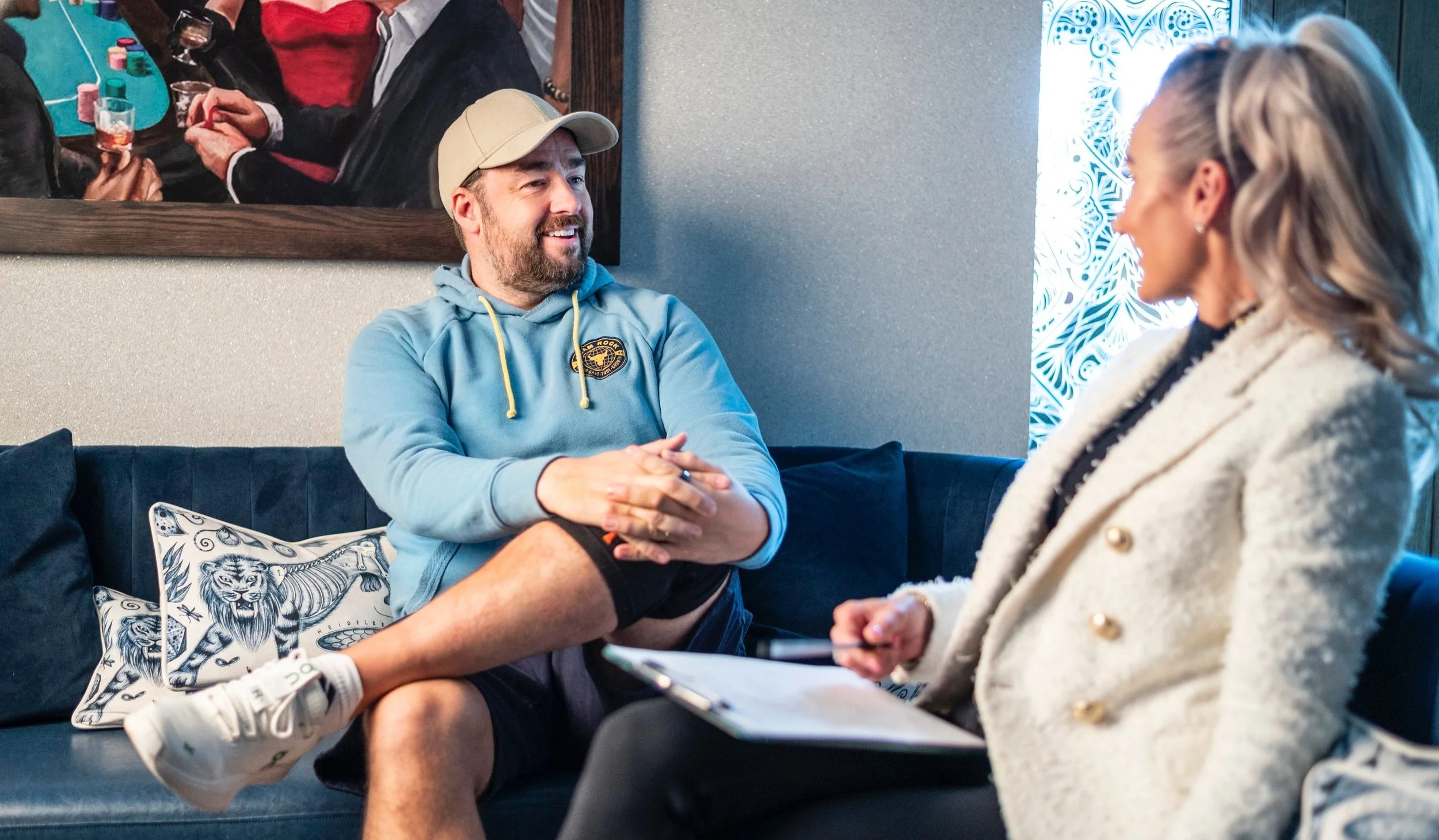Who's the Daddy?
Craig Hough sits down with the founder of twodaddies.co.uk Michael Johnson-Ellis to discuss his same-sex surrogacy journey
Michael, Wes and Talulah
When did you and partner Wes start to consider becoming parents via surrogacy?
It was pretty early on in our relationship, Wes has a 15-year-old daughter with his ex-wife and I’ve also been married to a woman previously. For me I’ve always wanted children, I’ve just never been in the right relationship to have them. When I first met Wes back in June 2012 we had the conversation very early on in our relationship and I remember asking him if he wanted more, hoping he was as keen as I was. Luckily he felt the same and we pretty much started exploring surrogacy straight away.
What did you already know about same-sex surrogacy in the UK and what did you do to find out more?
Back when Wes and I met we knew very little about surrogacy generally. Our perception back then was that UK surrogacy wasn’t even an option for gay men in the UK, but we were clearly wrong. We spent over 3 years researching all our options, internationally and in the UK. We even travelled abroad and attended numerous international fertility exhibitions. We explored India, Thailand, Nepal, US, Canada and Mexico- none of which felt right for us, either due to our sexuality, the cost or their experience generally. We finally decided to explore the UK so we contacted the three main not-for-profit agencies that support intended parents and surrogates. We quickly discovered that none of the main three at that period in time (2014) were taking new applications from same-sex male intended parents due to overwhelming numbers of intended parents and not enough surrogates. Based on the knowledge we had thus far and from what we’d learnt from Surrogacy UK (our favoured not-for-profit) we decided to conduct more research into UK surrogacy. First, we needed to understand the law so we met one of the UK’s leading surrogacy law experts Bev Jones from JMW Law in Liverpool and we began to understand the Surrogacy Act in a lot more detail and how we had to work within the current guidelines. This is partly why we set up TwoDads.U.K, because there isn’t an organisation that exclusively supports intended fathers (and fertility clinics) with UK surrogacy.
Talulah
Can you talk me through the process of finding a surrogate?
If you use one of the not-for-profits they will have surrogates that register with them, just as intended parents do. For those that want an independent route, there are some excellent closed community Facebook groups which allow surrogates and intended parents to get to know each other and hopefully ‘match’ with a view to creating a family. It’s important to realise that it is illegal in the UK currently to advertise for a surrogate. A surrogate can’t be paid commercially for carrying a child, they are currently only allowed to claim reasonable expenses which vary depending on the surrogate and her circumstances.
Our process was fairly straightforward. We began talking to women who wanted to become surrogates, and really only ever met with our current surrogate as it felt right. It’s really important that friendships are established first and foremost. We spent almost 10 months getting to know our surrogate and her family before we started fertility treatment. Once the relationship was formed we chose a fertility clinic in Manchester (Care Fertility) as they had experience of same-sex surrogacy and could find us an egg donor that matched our criteria. Two/three months later they found our donor and then we were ready to begin treatment.
Michael, Wes and Talulah
You have a gorgeous little girl called Talulah, how was the experience of having your first child with Wes?
It literally was the most magical day of my life. As Talulah was being born by elective C-Section you can only have one person in theatre. This means that for parents who have a child via surrogacy, one parent may end up missing the birth of their child. We decided that if only one of us could see our child born, then neither of us would. We’re working on ways to change this behind the scenes to make it less discriminatory.
It was also important that our surrogate was comfortable, so having her husband hold her hand was the most obvious and sensible option. We waited for our surrogate’s husband to bring our baby into a side room of the delivery ward. He knocked on the door but we could see no baby. Panic set in but he simply said ‘Get some scrubs on and come watch your baby being born’. Even saying it now, I still cry, it was totally unexpected and so overwhelming. So at 06:00 on the 16/10/16 we witnessed Talulah enter the world, weighing 8lb exactly.
What challenges have you faced through surrogacy?
We’ve had a very straight forward experience. Don’t get me wrong we get the odd stare or the odd ‘troll’ comment on Facebook or Instagram, but again, that’s why we’re raising more awareness about same-sex parenting. We did have one small bump in the road with the NHS Trust when we went for our 20 week consultant appointment. The hospital had never had a surrogacy journey before, so their policy was outdated and all based on the guidance available at the time. We had to involve our lawyer and issue an intent to sue letter, as the Trust were discriminating against us.
However, the Trust were more than amicable and we managed to resolve the issues without the need to sue. Since our journey, we’ve assisted the Department of Health re-write its guidelines for Surrogates and IP’s (Intended Parents) for Healthcare Professionals which was issued to the GOV.UK website in February 2018. This was a great honour to be able to assist others on the journey, and also help educate other Healthcare professionals too which is something we do at TwoDads.U.K.
Talulah
What support have you and Wes had through your surrogacy journey and how has that helped?
As part of the HFEA guidelines (the governing body for UK fertility clinics), you have to receive counselling when embarking on this type of treatment so we had emotional support. In terms of other external support, we received nothing apart from our amazing friends and family. There isn’t an organisation that exclusively supports intended fathers with this type of UK treatment, and that why we blogged and set up our Instagram and Facebook account @TwoDads.U.K.
How has your life changed since becoming a father?
It’s busier! Time seems to fly much quicker, I’m more patient and less selfish. Being a Dad has made me a better, more tolerate human that’s for sure. We’ve had some great opportunities too, back in October 2017 we got to appear in a Sainsbury’s Christmas ad (the singalong one), and then shortly after we appeared in a Channel Four documentary with Kieron Richardson (Gay Dads Forever) which looked at our journey to become fathers. In Summer 2018 we filmed an advert for Audi as part of their Future Families campaign, and we’ve just filmed an online advert for a major international communications brand which will be released in August. It all helps raise more awareness around same-sex families and shows families are created differently from how they were 40 years ago.
What led you to set up the twodaddies website and what is the overall mission?
The fact that no one was really supporting intended fathers exclusively and the fact information on surrogacy in the UK is hard to find. We wanted to help combine our lived experience with our knowledge and share our network of experts. We have eight other missions listed on the website which include working with the APPG (All Party Parliamentary Group) on the Surrogacy Law Reform. We were asked to visit the Houses of Parliament in October 2018 to provide our account of being fathers through UK Surrogacy. We’re also working on greater access for baby changing in male bathrooms, NHS Funding for fertility treatment for gay men, supporting UK clinics with their intended father caseloads, ensuring fair and equal treatment of surrogates and intended parents with NHS Hospitals (especially when children are born via C-Section). You can check out the other missions on our website.
Michael & Wes at the birth of Talulah
As a strong advocate for same-sex surrogacy, what more have you done to raise awareness?
Apart from the previously mentioned media campaigns, we were asked this year to speak at the Royal College of Nursing’s Fertility Nurses event to help educate them about our journey, and the correct terminology to use etc. We also got invited to speak at this year’s amazing Fertility Fest which was held at The Barbican in London. We were involved in their Queer Family Day and presented on stage in a TED-style presentation titled ‘Who’s The Daddy’, about all the things people feel it’s appropriate to ask two men with a child. And in June 2019 we’re on the cover for Fertility Road, which was the UK first featuring a gay male couple. We’re also so proud to now be writing with them, talking about parenting and fertility and infertility issues.
Swimmer Tom Daley recently stated in an interview “The laws here in the UK don’t necessarily protect the surrogate or the intended parents and it’s not that regulated in the same way that it is in the States”. What more needs to be done to modify the law and how do we get there?
Tom and Dustin are correct in the sense that the laws need a reform, which is exactly what is currently happening - and we’re working with the APPG Surrogacy Law Reform Commission, by providing our feedback with how the law should change. The US has commercial surrogacy arrangements in some States, but overwhelmingly here in the UK surrogates have said they don’t want those types of agreements. Surrogacy in the UK is altruistic, and it’s motivated by love and friendship and not money.
The Law in the UK currently identifies the surrogate as the legal parent at birth, until you apply for your parental order which can’t be submitted to the courts until the child is 6 weeks and 1 day old. It then takes around 10 weeks to be granted the legal parent of the child. We’d like to see that laws change so that the legal parents are in fact the intended parents from birth - like in the States. We’ve already seen a change in January 2019 allowing for single people to apply for parental orders and we hope to see the current 1985 Surrogacy Act replaced with something more current and reflective of modern family life.
Finally, with all the joy little Talulah has brought into your lives, is there a pitter-patter of more tiny feet planned for your future?
There is indeed, we’ve always wanted more children. We had a failed IVF transfer last summer which was a real blow, but after a 3-month break we transferred another embryo in December 2018 and we’re super excited to be having a boy, due at the end of August
Two Dads.U.K. - e: contact@TwoDadsUK.com
Top 5 pieces of advice you would offer to same-sex couples looking to embark on surrogacy in the UK?
Understand thoroughly the types of surrogacy arrangements that exist such as Traditional Surrogacy and Gestational Surrogacy and the possible impact of each journey.
Do your research into clinics and their success rates for fresh and frozen embryo transfers
Check which clinics are experienced in same-sex surrogacy and what does their support package look like for intended fathers?
Explore the costs thoroughly and look into each eventuality should you have failed transfers
Consider carefully who out of the two of you (if partnered) will ‘go first’ as this can often be a tricky topic
Don’t ever lose hope, keep chasing that dream to become parents, and if in doubt, contact us via Instagram and Facebook @TwoDads.uk or our website twodadsuk.com














